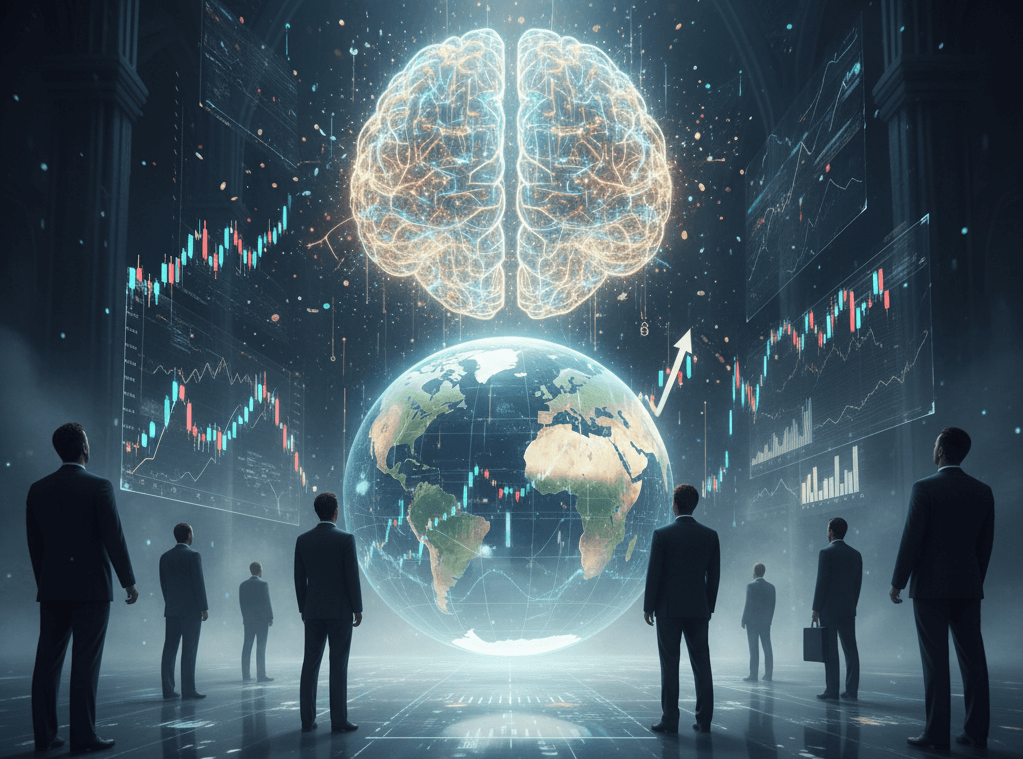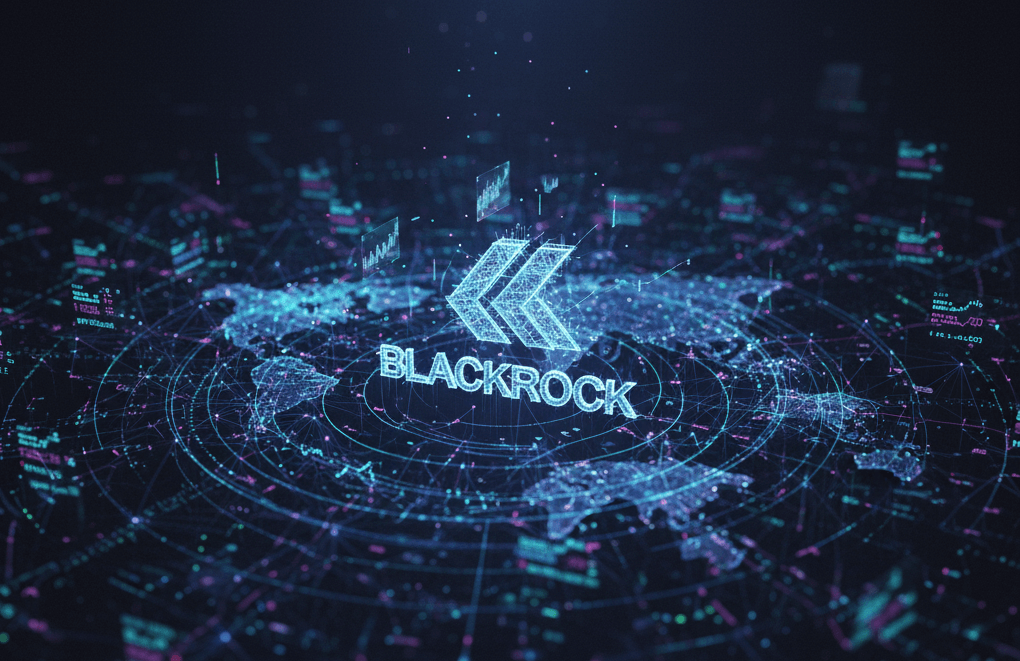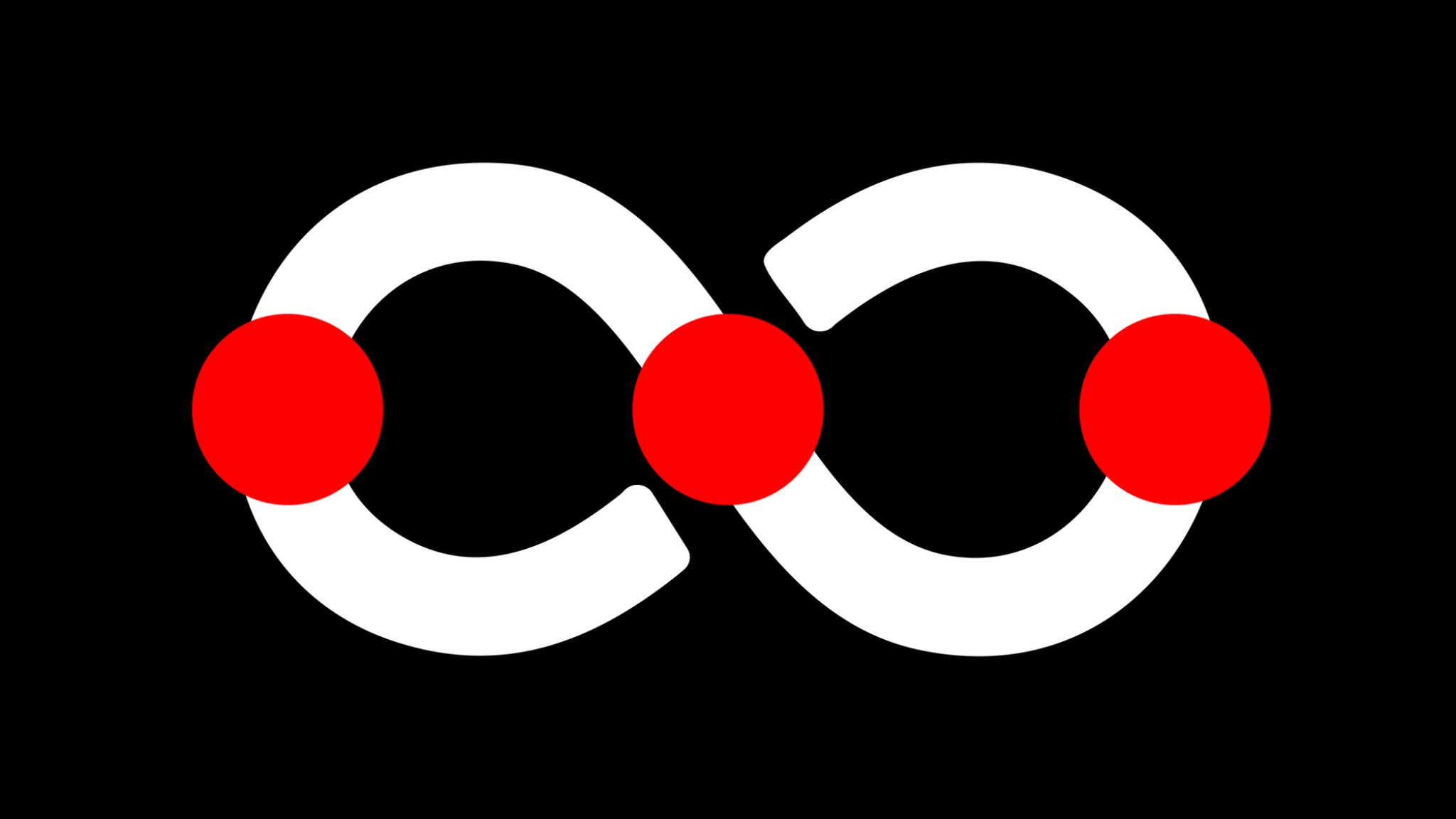In the dark corners of global finance, one AI system quietly moves more than $20 trillion in assets, which is about a quarter of the world's professionally managed money. Aladdin is the name of this system, which is probably the most powerful and important tech platform you've never heard of. Aladdin was made by BlackRock, the world's largest asset management firm. It started out as a simple risk management tool but has since grown into what many people think of as the operating system of global finance.

How Financial Control Came About
A big mistake starts the story of Aladdin. Larry Fink, who would later start BlackRock, lost $100 million in one trade at First Boston in the 1980s because he didn't do a good job of figuring out the risks. This terrible loss set off a chain of events that led to the creation of the most important financial technology platform in history. Fink saw a company based on strict risk management, so BlackRock was born in 1988.
Aladdin, which stands for Asset, Liability, Debt, and Derivative Investment Network, was first made to help with risk management within the company. By the 1990s, it had grown from just looking at risks to include managing portfolios, trading, and doing full market analysis. What began as a way to protect against losing money in trades turned into a way to take over the financial world.

The Structure of Power
Aladdin is a technological wonder that brings together the whole investment management process by using a common data language. The system runs on a huge network of about 6,000 computers spread out over several data centers, the biggest of which is in Wenatchee, Washington. These machines look at a lot of different economic factors that could affect financial markets, such as global economic data, stock market prices, weather, and political events.
The platform is incredibly advanced. Every day, Aladdin checks more than 2,000 risk factors, runs 5,000 portfolio stress tests, and does 180 million option-adjusted calculations. It uses Monte Carlo simulations to create statistical pictures of how stocks and bonds might behave in different market situations and under different future conditions. This lets institutions stress-test their portfolios against imaginary crises, like global pandemics or the collapse of Lehman Brothers.
The AI Revolution in Money
BlackRock has added a lot of AI features to Aladdin in the last few years. Aladdin Copilot and eFront Copilot are the start of a new era in AI-powered investment management. These generative AI tools can quickly find answers to help businesses make decisions, look at complicated datasets, and give insights that would be too hard for people to process by hand.
The AI integration goes beyond just looking at data. Aladdin's machine learning algorithms constantly improve their models based on how users interact with them and how well they perform, which makes predictions and recommendations more and more accurate. The system can automatically make investment decisions based on parsing earnings reports, central bank communications, and news sentiment thanks to its natural language processing capabilities.
The platform uses systematic investment methods and unusual data points like foot traffic patterns, credit card transactions, e-commerce activity, and even drive times to find out what people are buying. This data aggregation gives Aladdin users a head start on market trends before they are clear to regular analysts.
The Client Empire
Aladdin's reach goes well beyond what BlackRock does. The platform is used by more than 200 institutional clients around the world, including some of the most powerful financial companies in the world. Some of the most important clients are:
- CalPERS (California Public Employees' Retirement System) has $260 billion in assets.
- Deutsche Bank has about €900 billion.
- Prudential has about $700 billion.
- Vanguard - BlackRock's biggest rival uses Aladdin to manage its portfolios.
- Central banks like the Bank of Israel and the Federal Reserve use it to manage their corporate treasuries.
- Major companies like Apple, Microsoft, and Alphabet use it to manage their corporate treasuries.
The clients include asset managers, pension funds, insurance companies, banks, sovereign wealth funds, and even competitors. This makes it possible for a single technological ecosystem to hold more market intelligence and decision-making power than ever before.

Dependence on the Government and Handling Crises
The 2008 financial crisis made Aladdin's impact very clear. BlackRock was given the job of managing "toxic assets" worth $130 billion by the U.S. government. These assets included securities from the sale of Bear Stearns and American International Group. The Federal Reserve gave BlackRock permission to set the value of the balance sheets of nationalized mortgage banks Fannie Mae and Freddie Mac and run the $1.25 trillion mortgage-backed securities repurchase program.
BlackRock got sensitive financial information through these government contracts, which in turn improved Aladdin's data and market understanding. The system's global reach and power grew even more with similar deals with governments in the UK and Greece.
During the COVID-19 pandemic, BlackRock once again acted as the government's financial advisor. Critics pointed out that the company played a major role in the Fed's asset purchase program. People were worried about possible conflicts of interest in this relationship and whether BlackRock could get the Fed to buy BlackRock products.
The Power Concentration
There are big worries about the system when Aladdin has so much financial power. The platform had $21.6 trillion in assets as of 2020, which is about 10% of all the stocks and bonds in the world. This is the most market power that has ever been concentrated in one technological system.
BlackRock manages $11.6 trillion in assets directly (as of Q4 2024), which gives the company a lot of power over many global financial markets. BlackRock, Vanguard, and State Street are the "Big Three" asset managers. Together, they control 79% of the U.S. market for exchange-traded funds. BlackRock alone manages assets worth twice the GDP of Germany.
This concentration has what economists call "common ownership" effects, which means that the same shareholders control companies in different industries that compete with each other. Studies show that this can lower competition, raise prices, and change how the market works in ways that hurt both consumers and the economy as a whole.
The Scale of Influence
To understand BlackRock's massive influence: their $11.6 trillion in assets under management is larger than the entire GDP of the United States. When combined with Aladdin's additional $20+ trillion oversight, the platform influences roughly a quarter of all professionally managed money globally - more wealth than most countries could dream of controlling.
The Problem of Being Too Big to Fail and Systemic Risk
Like the "too big to fail" banks that caused the 2008 financial crisis, Aladdin's size and connections make it a systemic risk. When more than 17,000 traders and investment professionals use BlackRock's analytical models to help them make decisions about where to put their money, the possibility of groupthink across the whole system becomes a big problem.
Several important risks are pointed out by critics:
- Algorithmic Homogeneity: If everyone uses the same risk assessment models, they see the same risks in the same way, which could lead to dangerous blind spots that make market crashes worse.
- Single Point of Failure: A problem, cyber attack, or mistake in Aladdin could cause a big part of the world's financial markets to become unstable.
- Regulatory Blind Spots: Unlike banks, asset managers like BlackRock have mostly stayed away from the "systemically important financial institution" (SIFI) label and the stricter rules that come with it.
- Information Asymmetry: BlackRock's special access to government contracts and huge amounts of data gives it an edge in terms of information that could hurt competition in the market.
The Groupthink Danger
When thousands of financial professionals rely on the same AI system for risk assessment, the potential for system-wide blind spots becomes alarming. The Los Angeles County Employees' Retirement Association specifically rejected using Aladdin due to concerns about this "herd mentality" effect that could amplify market crashes rather than prevent them.
Problems with regulations and how to deal with them
The Financial Stability Oversight Council (FSOC) has not labeled BlackRock as a "systemically important financial institution," even though it manages trillions of dollars in assets and runs the most important financial technology platform in the world. If the company got this designation, the federal government would have to keep a closer eye on it and require more capital, just like it does for big banks.
Treasury Secretary Janet Yellen has said that regulators should pay more attention to certain activities than the size of businesses. On the other hand, critics like Senator Elizabeth Warren have said that BlackRock should be called "too big to fail." This discussion about regulation is part of a bigger conversation about how to deal with systemic risks in today's financial system.
The Financial Stability Board (FSB) has stopped treating big asset managers like banks and is now more interested in figuring out the risks that the whole sector poses. This way of thinking is based on the idea that asset managers are different from banks that hold deposits and make loans because they are responsible for other people's money.
Some institutional investors have said they won't use Aladdin, though, because they are worried about systemic risk and groupthink. The Los Angeles County Employees' Retirement Association, which manages $58 billion in assets, chose not to use Aladdin because they were worried that it would encourage people to think like everyone else.
The Power of Influence Around the World
Aladdin has an impact that goes well beyond traditional asset management. People have started using the platform:
- Sovereign Wealth Funds looking for advanced ways to manage risk
- Central Banks for managing reserves and putting monetary policy into action
- Insurance Companies for following rules and assessing risk
- Pension Funds for managing retirement savings for millions of workers
- Endowments and Foundations for managing charitable and educational resources
This worldwide use creates network effects that make Aladdin even more powerful. As more organizations use the platform, the data gets better, the insights get more useful, and it costs more for clients to switch to other options.
The Future of Money Management
BlackRock keeps making Aladdin better by putting money into AI, blockchain technology, and cloud computing in smart ways. Aladdin's AI Infrastructure Partnership and work on quantum computing applications show that the company will have more power in the years to come.
Recent changes include:
- Tokenization Projects: BlackRock has started tokenized funds on blockchain platforms. This could change the way financial assets are managed and traded in a big way.
- ESG Integration: Aladdin's risk models are starting to include environmental, social, and governance factors more and more. This could change how capital is allocated around the world to make it more sustainable.
- Cryptocurrency Exposure: BlackRock's successful Bitcoin ETF has brought in $57.5 billion in assets, showing that the company can make new asset classes seem legitimate.
What Financial Hegemony Means
The fact that BlackRock and its Aladdin system have so much financial power is a big change in how global capitalism works. BlackRock's influence goes beyond just one industry, like traditional monopolies. It affects all parts of the economy through its shareholdings and risk management services.
This has a number of worrying effects:
- Democratic Accountability: A private company's technology platform has a big impact on how capital is allocated around the world, which affects jobs, innovation, and economic growth.
- Market Manipulation Potential: Putting all trading and analytical tools in one place makes it easier than ever for people to manipulate the market, whether they mean to or not.
- Economic Stability: If Aladdin fails or is compromised, it could cause financial instability on a scale that is even bigger than the 2008 crisis.
- Innovation Stagnation: If one company's models decide which investments are "safe" or "profitable," it may make it harder for new business models that don't fit with the ones that are already out there.
Conclusion: The Hidden Power of Money
BlackRock's Aladdin is the most advanced financial technology to date. It is a single system that can watch, analyze, and affect global markets in real time. Supporters say that the platform makes financial markets more stable and efficient, but critics say that giving one group so much power is dangerous.
The system works mostly in the background, and most investors and policymakers don't see how it affects their decisions about trillions of dollars every day. As artificial intelligence gets better and Aladdin's reach grows, questions about who is responsible, how open the system is, and how risky it is become more and more important.
Whether Aladdin is the future of smart capital allocation or a risky concentration of financial power could have a big effect on the stability of the global economy in the years to come. This AI-powered platform has fundamentally changed the world of finance, making new kinds of power and influence that current rules have a hard time dealing with.
As we move further into the age of algorithmic finance, the decisions made by BlackRock's Aladdin system may be some of the most important ones for the stability of the global economy. These decisions are not made by elected officials or democratic institutions, but by AI algorithms that work for the world's largest asset manager.
"The real power in modern finance doesn't lie in visible institutions or elected officials, but in the invisible algorithms that process data, assess risk, and influence investment decisions affecting millions of people's livelihoods. Aladdin represents the ultimate evolution of this hidden influence."
